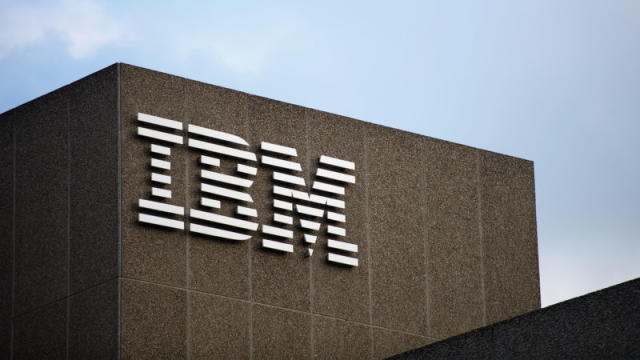IBM Blockchain Head DLT Is Transforming Global Supply Chains
IBM Blockchain Head is one of the leading companies in the development and implementation of blockchain solutions for supply chain.

Blockchain technology has the potential to revolutionize many industries, and supply chain management is no exception.?Distributed ledger technology?(DLT) can help to improve transparency, traceability, and efficiency across the entire supply chain, from raw materials to finished products. IBM Blockchain Head is one of the leading companies in the development and implementation of blockchain solutions for supply chain management.?In an interview with Cointelegraph, Rupert Colchester, the head of blockchain at IBM Australia and New Zealand, discussed how?DLT is transforming global supply chains.
Colchester shared that IBM is working on a number of blockchain initiatives for supply chain management, including:
- IBM Food Trust: This platform helps to track the movement of food products from farm to fork, providing consumers with confidence in the safety and authenticity of their food.
- IBM Sterling Supply Chain Intelligence Suite: This suite of solutions helps businesses to automate and streamline their supply chains, improve visibility, and reduce costs.
- IBM Trusted Identity: This solution helps businesses to manage the digital identities of their employees, customers, and partners.
Colchester also discussed the state of blockchain adoption in Australia, noting that there has been significant progress in recent years. However, he believes that there is still room for growth, and that more businesses need to be educated about the benefits of blockchain technology.
How is DLT transforming global supply chains?
DLT is transforming global supply chains in a number of ways, including:
- Improving transparency and traceability: Blockchain can be used to track the movement of goods and materials throughout the supply chain, providing all stakeholders with a single, shared view of the data. This can help to identify and resolve problems early, and to prevent fraud and counterfeiting.
- Enhancing efficiency: Blockchain can help to automate and streamline many of the manual processes involved in supply chain management. This can reduce costs and improve efficiency.
- Reducing risk: Blockchain can help to reduce risk in the supply chain by providing a secure and tamper-proof record of transactions. This can help to reduce the likelihood of disputes and fraud.
- Improving collaboration: Blockchain can help to improve collaboration between different stakeholders in the supply chain. This can be achieved by providing a shared platform for sharing data and documents.
Examples of how IBM is using DLT to transform supply chains
IBM is working with a number of companies to use DLT to transform their supply chains. Here are a few examples:
- Walmart: Walmart is using IBM Food Trust to track the movement of fresh food products from farm to store. This has helped Walmart to improve the safety and traceability of its food supply, and to reduce waste.
- Maersk: Maersk, a global shipping company, is using IBM Blockchain to track the movement of shipping containers. This has helped Maersk to improve the efficiency of its shipping operations and to reduce costs.
- IBM and KPMG: IBM and KPMG have partnered to develop a blockchain-based solution for tracking the movement of diamonds. This solution will help to ensure the authenticity and provenance of diamonds, and to prevent the trade in conflict diamonds.
The future of DLT in supply chain management
DLT is still a relatively new technology, but it has the potential to revolutionize supply chain management. As more businesses adopt DLT, we can expect to see even more innovative and transformative applications of this technology in the years to come.
Here are some of the trends that we can expect to see in the future of DLT in supply chain management:
- Increased adoption: More and more businesses will adopt DLT for supply chain management, as they become more aware of the benefits of this technology.
- New applications: New and innovative applications of DLT in supply chain management will emerge. For example, DLT could be used to create smart contracts that automatically manage transactions between different stakeholders in the supply chain.
- Consortia: More businesses will form consortia to develop and implement DLT solutions for supply chain management. This will help to accelerate the adoption of DLT and to ensure that solutions are interoperable.
DLT is transforming global supply chains in a number of ways, including by improving transparency and traceability, enhancing efficiency, reducing risk, and improving collaboration. IBM is one of the leading companies in the development and implementation of blockchain solutions for supply chain management. The future of DLT in supply chain management is bright, as more and more businesses adopt this technology and new and innovative applications emerge.
What's Your Reaction?
















